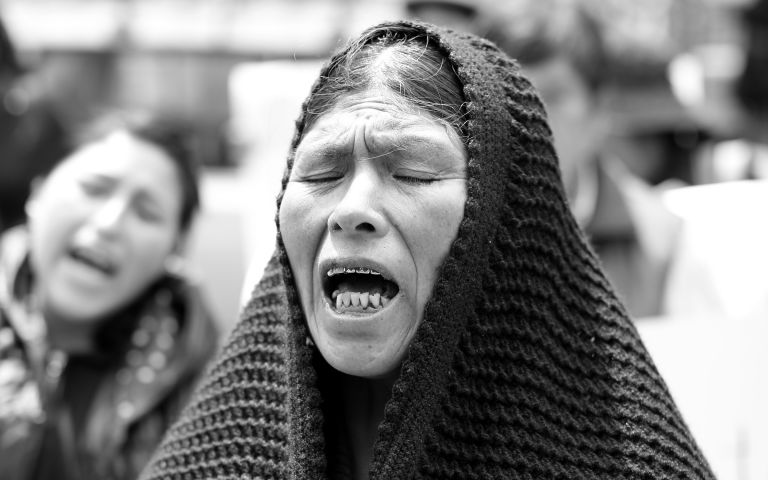From sexual violence in displacement camps to extra farm work and greater risk of illness, women shoulder a bigger burden from worsening extreme weather and other climate pressures pushing people to move for survival, a global aid group said on Tuesday.
Scientists expect forced displacement to be one of the most common and damaging effects on vulnerable people if global warming is not limited to an internationally agreed aim of 1.5 degrees Celsius, CARE International noted in a new report.
“This report shows us that climate change exacerbates existing gender inequalities, with women displaced on the frontlines of its impacts bearing the heaviest consequences,” said CARE Secretary-General Sofia Sprechmann Sineiro.
For example, women and girls uprooted by Cyclone Idai, which hit Mozambique, Zimbabwe and Malawi in 2019, are still facing serious health threats due to poor access to basic services and sanitary products, the report said.
And in Ethiopia, where about 200,000 people were forced from their homes last year by drought and floods, women living in overcrowded shelters face higher levels of sexual violence there and on longer, more frequent trips to fetch water and firewood.
Sven Harmeling, CARE’s global policy lead on climate change and resilience, said displacement linked to climate stresses was already “a harsh reality for millions of people today”.
If global warming continues at its current pace towards 3C or more above pre-industrial times, “the situation may irrevocably escalate and evict hundreds of millions more from their homes”, he added.
Climate change impacts are likely to strengthen and “unfold over the next couple of years, and not only in the distant future”, he told the Thomson Reuters Foundation.
Failure to prepare for them will lead to more suffering and people having to abandon their land, he said. Many places already are affected by multiple climate shocks and rising seas, making it harder for those displaced to return, he added.
“(Climate extremes) may mean more men are leaving to try to find income elsewhere, and that puts an additional burden on the women who stay back and have to try to earn (money) while taking care of the family,” he said.

MEANS TO ACT
The report said governments and aid agencies needed to gather more data on how women and girls are affected by climate-linked displacement and migration so they can better understand and try to alleviate their situation.
It also called for more women to lead efforts to respond to climate threats, including in their own communities.
And it said more funding should be allocated to help women adapt to changing conditions on a hotter planet, such as by choosing resilient crops or being able to access micro-credit, so that fewer will be uprooted from their homes.
In most countries, climate measures supported by public finance do not adequately prioritise women, CARE noted, calling for at least 85% of funding for adaptation projects to target gender equality as an explicit objective by 2023 at the latest.
But some projects are making women a priority, it said.
In two rural districts of India, CARE worked with 4,500 tribal women in 50 villages whose rice harvests were falling as rains became erratic, water scarcer and soils less fertile.
Over the past seven years, it helped them set up and run self-support groups that gave them greater confidence and financial skills to start addressing the problem.
They also received seasonal and weekly weather forecasts so they could plan farming activities.
The aid agency said agriculture production rose by a third, food insecurity declined and the number of days women had to work away from home to make ends meet more than halved.
In Somali villages, women were given business training and organised into groups that pooled and gradually built up savings that were then used to offer loans to their members.
The groups helped their communities ward off economic shocks and hunger during Somalia’s 2016 drought, the report said.
“CARE’s experience tells us that when women lead in crises, entire communities benefit, and more effective and sustainable solutions are found,” said Sprechmann Sineiro.

